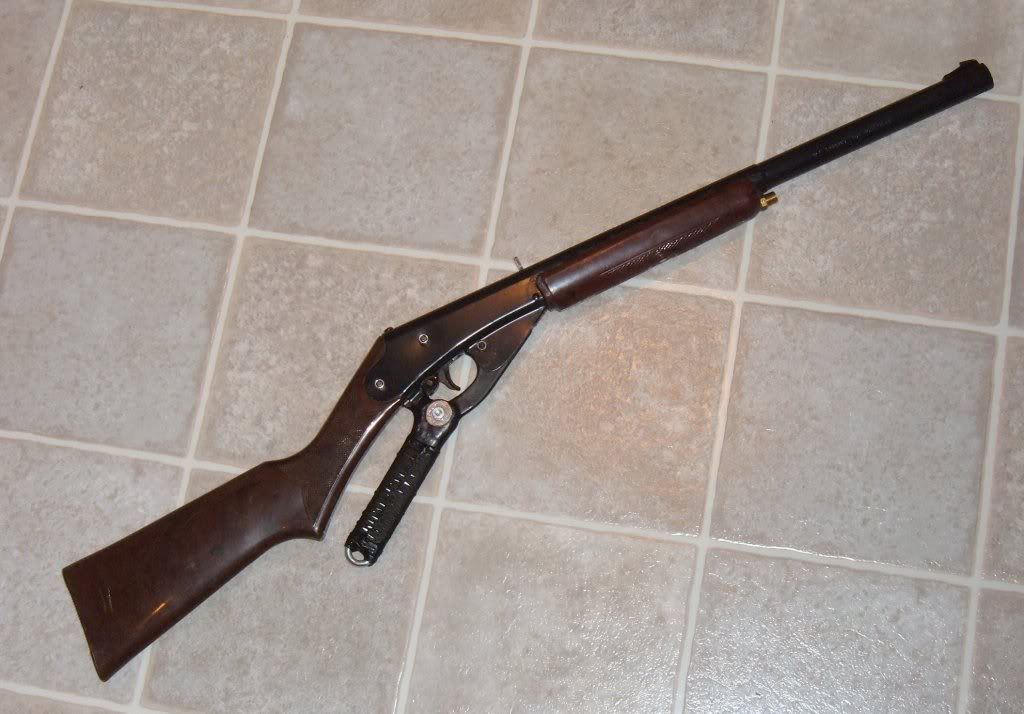I have played a lot with GGDT, what a wonderful toy!
I played enough to finally understand by varying parameters that the length of the gun I have in mind (being a single or 6-shooter) limit the possible velocity and the kinetic energy because there’s no time for acceleration. Unless going to crazy pressure levels!
With a 30 inch long gun, it would start to be enough, but that’s not my goal. I really would like to make a handgun, not a short rifle
Also, I plan to have relatively heavy arrows, because a good kinetic energy is what I would like, much better than a high velocity. I don’t plan to be accurate on long range; still I would like some powerful damage picture to show!
Anyway, while thinking about how to increase the velocity and kinetic energy on a short distance (and not doing a crossbow!), I figured that I could use a part of the energy store in a spring to give a good kick, when the compressed air start to blow.
Here’s a crude drawing (not to scale).
You can see the arrow is hollow, this gives me the opportunity to kick from the inside when the spring expand, and at the same time use the rapid air decompression to continue increasing the velocity while the tube is blow from the inside. Like in those nerf guns
Maybe a bit tricky to adjust! It gives me also a way to have a very light arrow back but well sustained in the air, while having a heavy steel tip. This should improve accuracy on middle range.
Maybe I’m just rethinking the wheel here and the Kick’n’Blow is just a fancy name for old stuff. As this being attempted before? What do you think?









